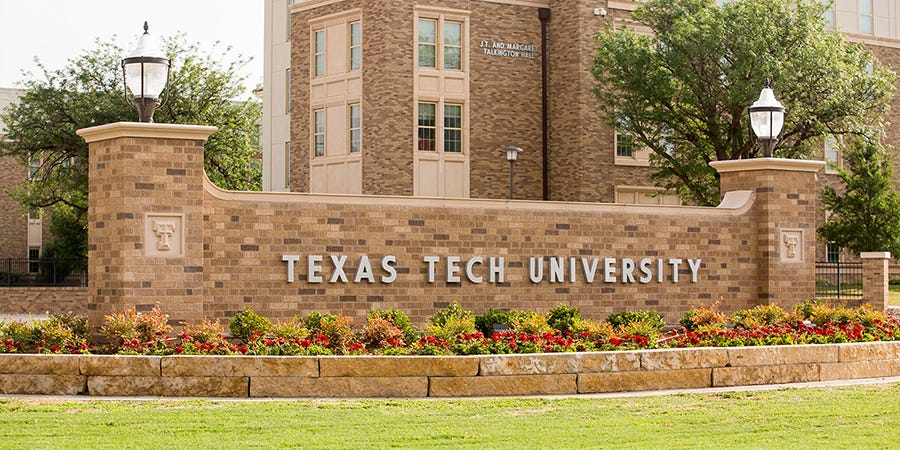The Texas Tech University System established itself as the first major Texas higher education network to implement restrictions on faculty discussions about transgender and nonbinary identities throughout its five universities, serving more than 69,000 students.
The Texas Tech University System became the first major Texas higher education network to restrict faculty discussions about transgender and nonbinary identities throughout its five institutions, which serve more than 69,000 students. The system-wide policy emerged from Chancellor Tedd Mitchell, who based his decision on President Donald Trump’s executive order about gender recognition and Governor Greg Abbott’s anti-” woke gender ideology” directive and state House Bill 229.
The new system-wide policy has generated confusion among students at all five universities.
The directive from Mitchell forces Texas Tech University, Angelo State University, Midwestern State University, and the two health sciences centers to restrict classroom discussions about gender identities that extend beyond male and female categories. The directive forces teachers to teach students about two human sexes only while the institution maintains its legal compliance, according to Mitchell.
The memo from Mitchell states that employees retain their First Amendment rights outside of work but must follow these laws when teaching students within the scope of their professional duties.
Legal experts immediately challenged the way Mitchell applied the law to this situation. The ACLU of Texas staff attorney Chloe Kempf declared this move a complete violation of academic freedom because no state or federal law exists to stop college instructors from teaching gender identity topics.
Educators throughout the institution face professional risks because of the unclear policy regarding gender-related discussions.
Faculty Fear Academic Repercussions
The unclear policy has triggered widespread fear among teaching staff who fear they will face professional penalties when discussing gender-related subjects. A Texas Tech professor, who wishes to remain anonymous due to concerns about potential job termination, expressed that “Everyone is terrified.” The faculty member expressed shock through their question about the implications for academic freedom. The policy indicates that academic freedom does not exist, according to the instructor.
The Texas chapter of the American Association of University Professors, through its president Brian Evans, stated that these restrictions would block essential classroom dialogue.
Angelo State Leads Restrictive Measures
According to Evans, the instructor cannot lead a discussion about prohibited subjects. The instructor faces three possible responses to this situation, which include remaining silent while the debate continues, stepping out of the room, or redirecting the conversation to a different subject.
Angelo State University, within the Texas Tech system, began enforcing these restrictions before the system-wide policy announcement.
The Texas Tech system member, Angelo State University, had already started enforcing similar restrictions before the system-wide policy announcement took effect. The university distributed departmental meeting instructions regarding the use of transgender students' names and pronouns, rather than making official announcements to the entire campus.
The university established a policy that permits students to use their preferred names and display Pride flags in their offices, yet it continues to ban discussions about transgender identity. The department officials told faculty members that they could present LGB information and content, but transgender topics remained strictly prohibited. The policy restricts only transgender discussions while allowing all other gender-related content.
Student Advocates Raise Mental Health Concerns
Student advocates express concern that the policy will increase discrimination against vulnerable students while harming the institutions' reputations for being inclusive.
The graduate student at Texas Tech University’s main campus expressed that these measures establish unfair treatment for students who enrolled to learn. The state policy director, Hayden Cohen, from Students Engaged in Advancing Texas, stated that these rules eliminate transgender student identities during classroom discussions while producing dangerous campus spaces.
Broader Political Context Shapes Policy
The policy restrictions emerged after Texas A&M University professor Melissa McCoul lost her job because of right-wing opposition to her gender identity discussion in a children’s literature class. The former president of Texas A&M University, Mark Welsh III, stepped down from his position after facing public criticism about his response to the incident.
The Texas Republican Party now exercises growing authority over state universities through its appointment of regents who receive expanded power to oversee curriculum development and faculty selection. The system has eliminated diversity, equity, and inclusion programs, but academic teaching activities remained protected from these restrictions.
The Texas Tech directive establishes new limits on classroom teaching, which may set a precedent for other major university systems to adopt comparable policies. The controversy between political mandates and academic autonomy in Texas's higher education institutions continues to intensify due to legal battles and faculty opposition.



